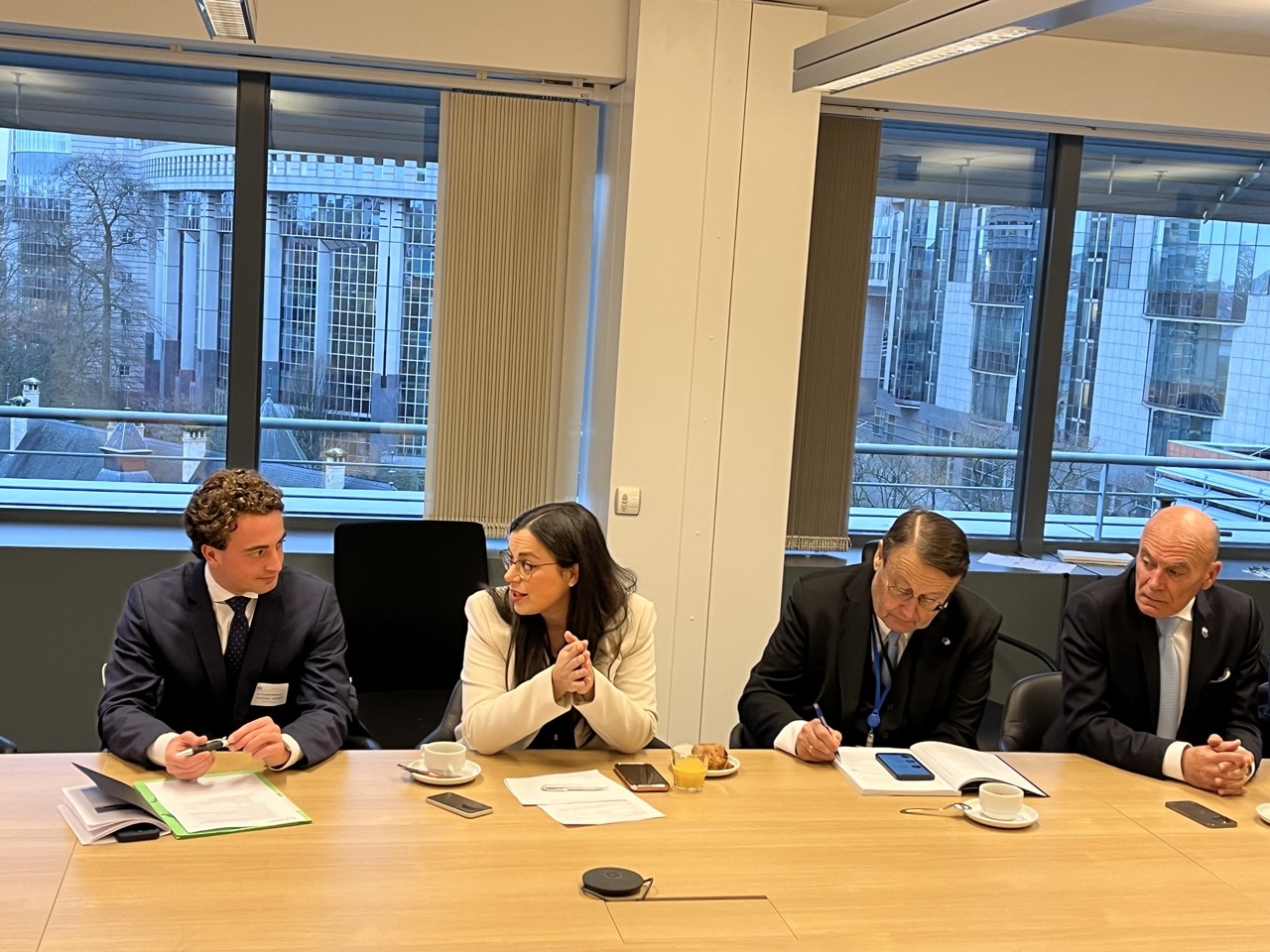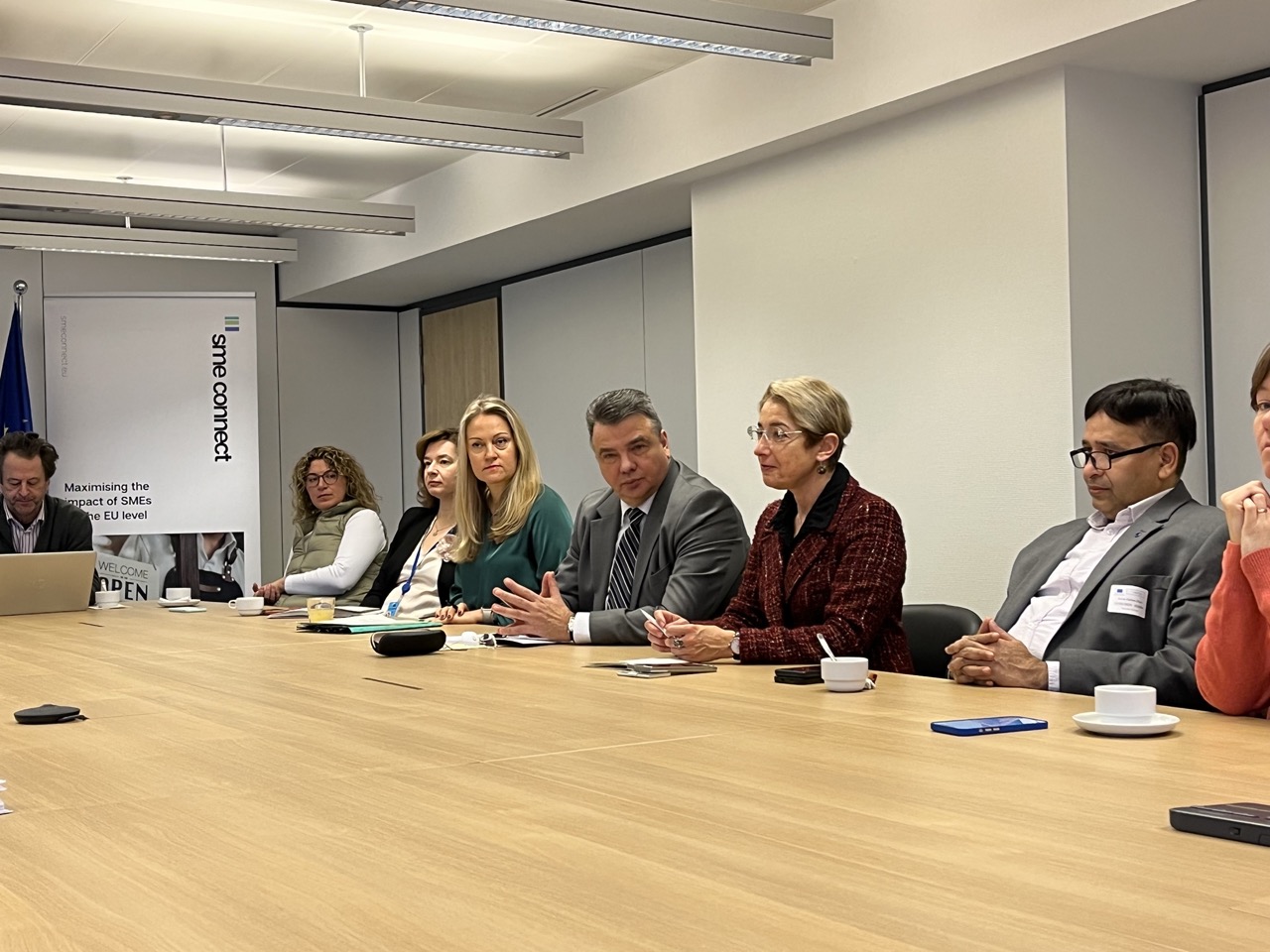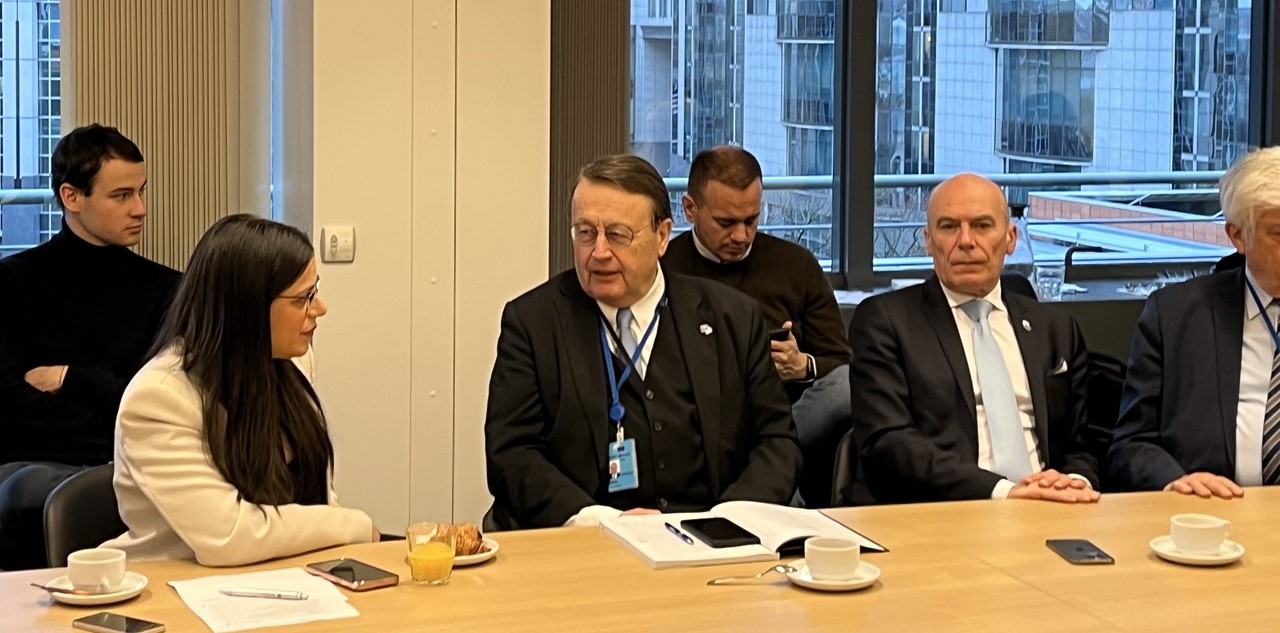Innovation Talks –
Exploring the Impact of AI Revolution on Europe’s Competitive landscape

On Wednesday, 21 February, SME Connect organized a working breakfast on the topic of “Innovation Talks – Exploring the Impact of AI Revolution on Europe’s Competitive landscape” in the European Economic and Social Committee in Brussels.
The panel featured distinguished experts including AUREL LAURENȚIU PLOSCEANU, Vice-President for Communication of EESC; BONIFACE DE CHAMPRIS, Senior Policy Manager, CCIA Europe; MILENA ANGELOVA, Member of the European Economic and Social Committee – Employers’ Group; Rapporteur on Digital skills and education package; Bulgarian SME Envoy; JOSIANNE CUTAJAR MEP, opinon-rapporteur on the AI Act and shadow-rapporteur on the Path to the Digital Decade report; DR. PAUL RÜBIG, Member of the European Economic and Social Committee – Employers’ Group; President of SME Connect; Member of the European Parliament 1996-2019. The discussion was moderated by DR. HORST HEITZ, Chair of the Steering Committee of SME Connect.
AUREL LAURENȚIU PLOSCEANU, Vice-President for Communication of EESC, initiated the conversation by emphasing that hosting such a debate presents in many ways both an opportunity and a challenge and he encouraged leveraging the networks with the committee members. Referring to early materials addressing challenges raised from the AI revolution, he expressed appreciation for the business-oriented approach. He continued to underscore the necessity of addressing moral and ethical dilemmas and the importance of a human-centered approach.
Continuing with the keynote speech, BONIFACE DE CHAMPRIS, Senior Policy Manager at CCIA Europe, representing leading companies, including developers, deployers and users of artificial intelligence across the world. He emphasized AI’s potential to revolutionize existing industries with examples of enhanced efficiency, improved products, and scientific advancements. Stressing the importance of AI adoption, especially by SMEs, he noted its significant economic impact and urged for ambitious regulatory support from the EU. When discussing the forthcoming AI Act, he acknowledged its imperfections and the need for clarity and compliance guidelines, but expressed hope that the act would foster trust and innovation over time. He welcomed recent EU initiatives supporting AI startups and SMEs but called for smooth interaction between existing regulations and effective implementation and enforcement. He highlighted Europe’s strengths in industry, research, and diverse data, underscoring the need to fully embrace AI’s potential for societal benefit.

MILENA ANGELOVA, Member of the EESC representing the Employers’ Group, emphasized the need to bridge educational gaps to meet AI advancement targets. She noted the slow pace of educational programs and the lack of support for teachers to keep up with technological advancements. Ms Angelova called for the establishment of a European system for micro-credentials to recognize and utilize individuals skills effectively. She said that AI is crucial for maintaining competitiveness amidst multiple challenges and sustainable development. She raised concerns about complicated legislation hindering business operations and proposed leveraging AI for immediate solutions – such as non-financial reporting, where AI could streamline processes and aid decisionmaking. She believes that “artificial intelligence is the answer for SMEs to stay competitive”.

JOSIANNE CUTAJAR MEP and opinon-rapporteur on the AI Act and shadow-rapporteur on the Path to the Digital Decade report, continued the discussion with the importance of legislation in the rapidly evolving digital sector. She emphasized the need for human-centric regulation in the digital sector to balance innovation and ethics. Discussing the importance of digital skills, she noted the role of legislation in supporting SMEs adoption of AI and urged for continued monitoring of this legislation’s effectiveness. She advocated for supporting instruments like the Strategic Technologies for Europe Platform (STEP) program to assist SMEs in technological innovation. She called for preventing overlap between new and existing legislation and ensuring access to AI factories for SMEs. Looking ahead to next legislative term, Ms Cutajar mentioned upcoming legislation on AI liability and AI at the workplace and stressed the need for clarity and innovation-friendly legislation. She emphasized the importance of collaborative efforts in striking a balance between the risks and opportunities of AI, while protecting human rights and considering the interests of all stakeholders – including SMEs. Ms Cutajar emphasized the need to also simplify messages for broader understanding and suggested considering not only how to attract talent to the EU but also how to retain it, acknowledging the competition from other continents with fewer regulations. Lastly, she highlighted the interconnectedness of sustainability, competitiveness and affordability and – the need to balance environmental and economic perspectives while also considering social impacts.
DR. PAUL RÜBIG, Member of the European Economic and Social Committee representing Employers’ Group, President of SME Connect, acknowledged the complexity of legislation and emphasized the need for smart regulation. Mr Rübig focused on the burden of compliance placed on SMEs due to the plethora of regulations and he questioned how AI could alleviate this burden and enable SMEs to automate compliance processes. He underscored the role of governments and public officials in supporting SMEs and ensuring their ability to focus on their core activities. Finally, he emphasized the importance of communication between legislative bodies and agencies to ensure effective implementation of regulations and called for improved communication strategies, especially in the run-up to elections.
